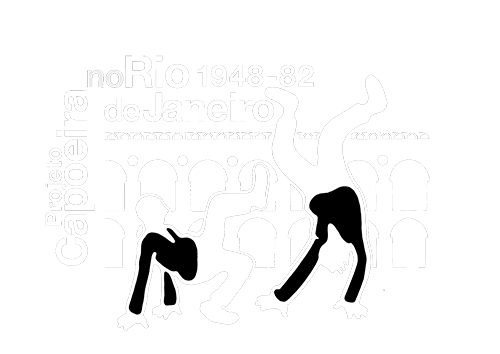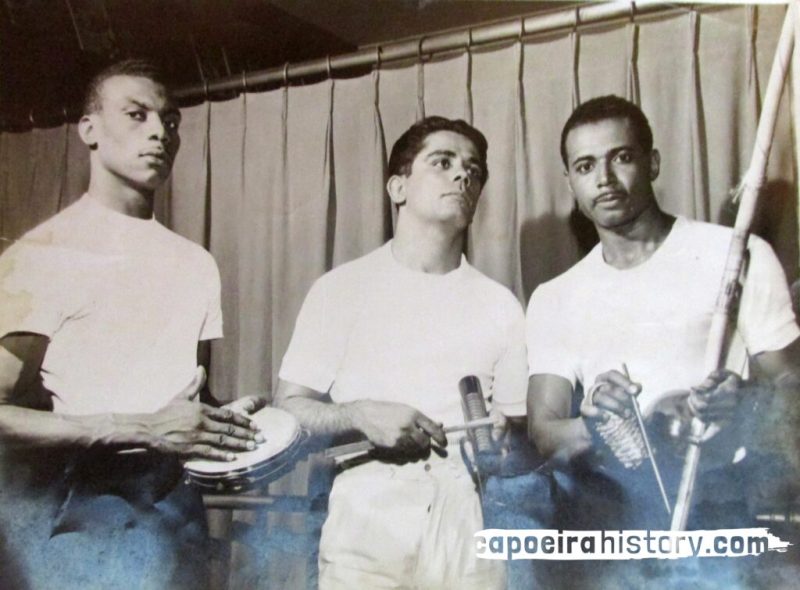By Roberto Pereira.
In the early 1950s, the young Artur Emídio de Oliveira (1930 – 2011) left the small town of Itabuna, in the interior of Bahia, to conquer the world. In his own words, his aim was to showcase the “value of the national fight”, capoeira. A pupil of Paizinho (Teodoro Ramos), in addition to Itabuna, Artur Emídio challenged fighters and climbed into rings in Salvador, São Paulo and Rio de Janeiro. Due to his exceptional skills, he was able to fight Robson Gracie at a time when the family already dominated the rings. When he lost, he asked for a rematch, but his request wasn’t considered. He continued fighting on a path of wins and losses. He was even advertised in newspapers of the Rio─São Paulo axis as the greatest capoeirista in Brazil, “the king of capoeira”.
However, the leading role of this eminent Bahian capoeirista was not restricted to fighting. As well as the ring, Artur Emídio ventured onto the stage. In those 1950s, black artists definitely conquered the stage. Mestre Artur Emídio was part of a generation that brought to newspapers, theatres, cinema, radio and television black practices that at the time were highly discriminated against, such as capoeira, samba, candomblé, maracatu and frevo, and presented them as “genuinely Brazilian”.
This was the period in which great theatre companies and folklore groups emerged, such as the pioneering “Brasiliana” group by Haroldo Costa and Miécio Askanasy, the Mercedes Batista Folkloric Ballet and the Brazilian Popular Theatre by Solano Trindade, among others. These companies, whose casts and directors were all or mostly black, adapted these practices ─ which at the time were restricted to the Afro-Brazilian shrines and the streets ─ to the stage and the screen, giving them visibility, adding value and drawing attention to their importance. The agency of these groups and their shows was fundamental in transforming the image of these expressions from ethnic and local to practices seen as national and Brazilian.
This short documentary about him is a modest first tribute to this great capoeira master. It is, in fact, one more instrument to make the trajectory of this old Bahian capoeirista a little better known to the general public.
We started recording in 2018 completely independently and finished in 2023, when we managed to get a small amount of funding to finalise it. The film is based on historical research, using archive footage and a few interviews we managed to conduct when we were still in Rio de Janeiro. At the time, we were able to gather the testimony of two great guardians of the history of capoeira in Rio de Janeiro, Master Genaro (1934 – 2022) and Master Polaco (1949 – 2021) and the scholar of capoeira in Rio de Janeiro, Matthias Röhrig Assunção. To our regret, we didn’t have the resources in time to finalise the documentary before the departure of the old mestres Genaro and Polaco.
Although we tried, we were unfortunately unable to obtain the testimonies of other students and people close to Mestre Artur Emídio, which is a noticeable gap. On the other hand, this means that there is a vast amount of human material to be explored in other documentaries by other directors.
May there be other short films, feature films and series!
And long live Master Artur Emídio de Oliveira!
Enjoy watching the documentary about Master Artur Emídio:
Credits: Directors: Roberto Pereira and Ricardo Pereira Research and Script: Roberto Pereira Photography: Paulo do Vale Edition and Finalization: Marcelo Souza Production: Coletivo Volta do Mundo e Ina Ilha Sound: Inaldo Aguiar Soundtrack: Paulinho Akomabu
Cast:
Mestre Luís Senzala
Mestre Cabeleira
Instrutor Izalberto Diniz
Instrutor Flávio Oliveira
Pensativo do Pandeiro
Luppretinha Barros




